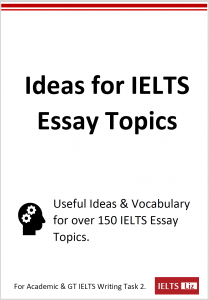Technology is a popular topic in speaking part 3. Below are some common questions with a model answer underneath.
- What modern technological devices are most common in your country?
- Do you think modern technology is useful?
- Do you think people rely too much on technology?
- Do you think men and women view technological devices differently?
- Why do you think people spend so much money buying the latest devices?
Model Answer
- Question: Do you think men and women view technological devices differently?
- Answer: Yes, I do. For starters, men are usually more obsessed with gadgets. They are almost like children with the way they want to play with the latest gizmos and learn all their new functions. They are constantly fiddling around with their new toys. I also think that gadgets are a kind of ego for men. I mean they often compare their new toys with each other to see who has the best one. Women, on the other hand, are more down to earth and see devices more rationally as a means to communicate with others or to perform a particular function. Of course, this is pretty stereotyped but it seems to hold true for most men and women I know.
Useful Expressions
- fiddling around with something = playing with something
- down to earth = realistic, practical
- stereotyped = putting people into a group or categorising them not based on fact
Note: As you can see this model answer is from a woman’s perspective, if you would like to give a sample answer from a man’s perspective, please post it in the comments box. Feel free to post your answers to other questions as well.
Recommended
Technology Vocabulary for Speaking





